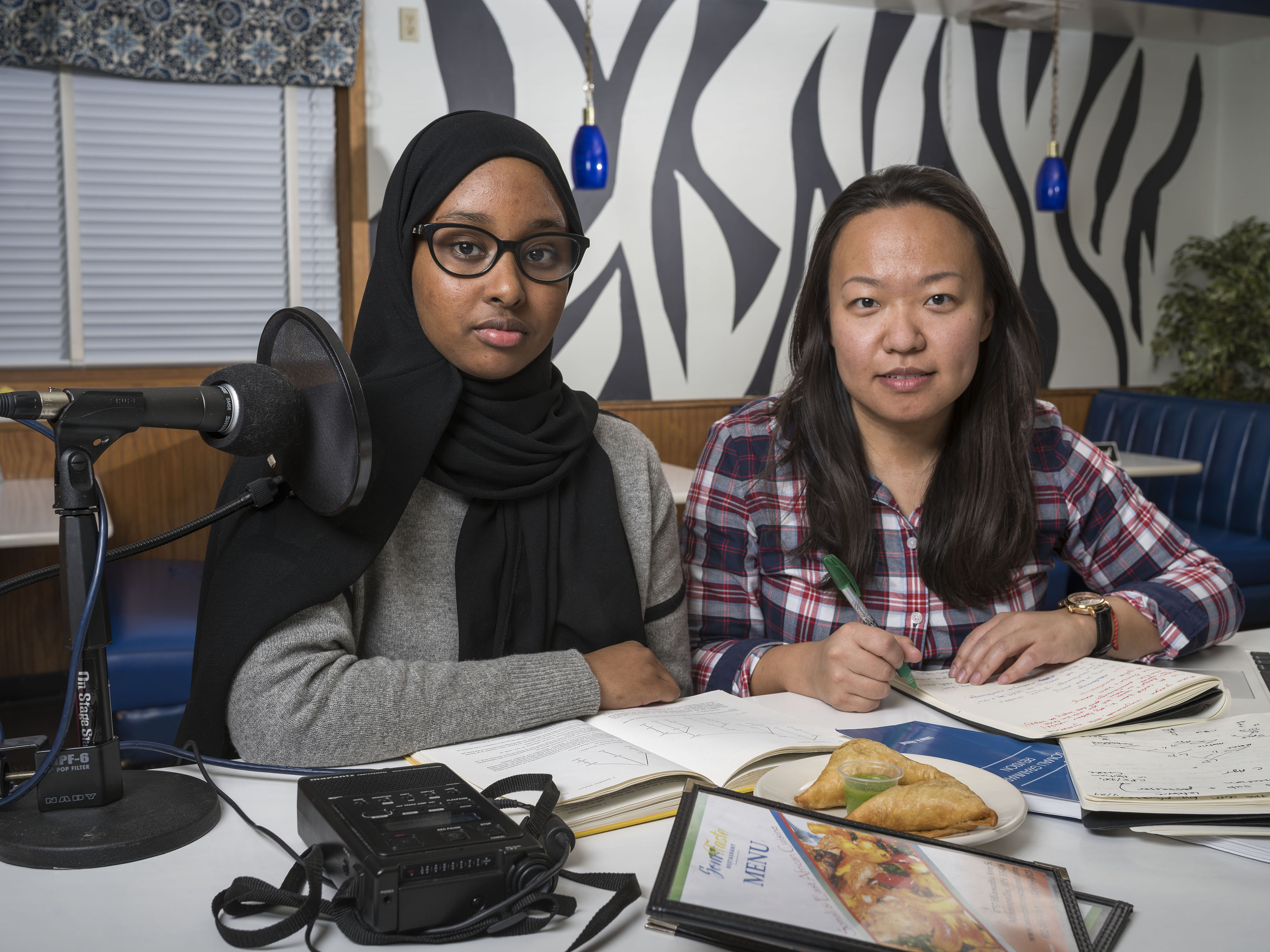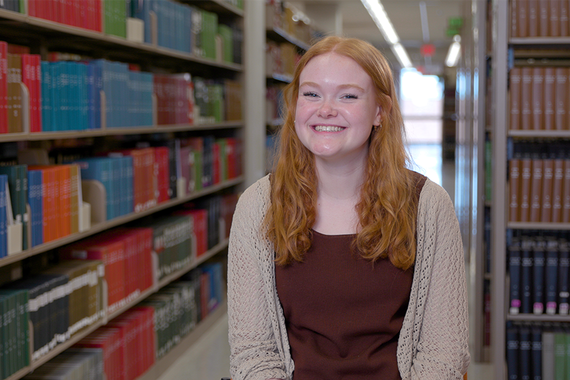On Purpose: Portrait of Linguistics

Linguistics is the study of the human capacity for language. What properties of the human mind allow us to learn and use language in a way that is unique to us as a species? What can the similarities and differences found across human languages tell us about how language is stored and organized in our brains? The Institute of Linguistics is dedicated to expanding our understanding of these broad questions and to fostering learning and research that applies this understanding to the betterment of various speech communities.
In this photo, linguistics students Sahaam Abdi (BA ’15) and Borui Zhang (MA ’15, PhD in progress) are conducting linguistic research on Somali. In spring 2015, Abdi and Zhang, along with other students in Professor Claire Halpert’s Field Methods in Linguistics course, worked together to document and analyze Somali using the tools of formal linguistic theory.
Both Abdi and Zhang have taken paths that exemplify the diverse and innovative ways that our students build on their rigorous training in linguistic theory. Abdi has found her linguistics background to be an asset as she pursues her MA in speech-language pathology, training to become the second Somali-speaking speech pathologist in the country. In Zhang’s PhD research, she combines her knowledge of theoretical linguistics and documentation of lesser-studied languages with a computational perspective, working to create parsers and other language processing tools for the understudied Tibeto-Burman language Newari. In the photo, the students are meeting to conduct their research at a local Somali restaurant, SomTaste, which reflects the way that our work and research is inextricably linked to local speech communities.
While some of our faculty and students, like Abdi and Zhang, focus on relatively recent newcomers to the local linguistic landscape, we have a robust tradition of training students to document, analyze, and revitalize local indigenous languages, as reflected by several of our recent graduates’ work on Ojibwe and Meskwaki. We also enjoy strong ties to other disciplines in cognitive science, which allows our students to build on their linguistics degree for clinical applications and the development of language technology.
Our faculty’s expertise facilitates these diverse investigations, covering a wide variety of language families, subject areas, and methodologies. In our coursework, we give students the tools to engage in linguistics as a scientific process, teaching them how to investigate the complex system of human language through data that is often messy and incomplete. By studying linguistics, students can learn the value of applying a rigorous method to complex problems—even if it doesn’t immediately yield all the answers. We are proud to see them putting these skills to use in a wide variety of careers.


